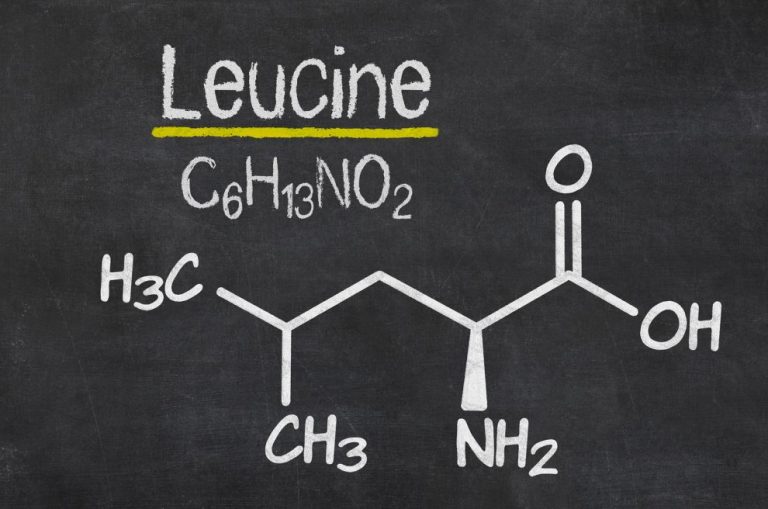Leucine is an amino acid belonging to the group of exogenous amino acids, ie those that are not produced by the body itself, but which must be delivered with food or appropriate supplementation. It belongs to one of the three elements that make up BCAA. It plays a very important role for the body, it is especially recommended for athletes because it is an amino acid that mainly contributes to the development of muscle mass.
Leucine effect
Leucine affects a number of functions in our body. First, it affects the endocrine system, especially insulin.For athletes, it plays a special role primarily due to the fact that it builds muscle proteins, strengthens the power of synthesis, the rate and efficiency of mTOR, and protects against the breakdown of muscle proteins.Its presence is essential in the production of growth hormone, in wound healing, protein translation, and muscle regeneration.
Dosage of leucine
It is very important to diet, thanks to which we are able to provide this amino acid.It is important, therefore, that every man's diet should contain adequate amounts of meat, eggs, fish and dairy products. When it comes to athletes, it is recommended to use appropriate supplementation with this protein.So how much should we take it then? Much really depends on our diet, body weight, type of training, and even our goals that we want to achieve.The amount of the dose to be taken ranges from 6-12 grams. On workout days, it is good to take it both before and after training, along with carbohydrates. On non-workout days, we give leucine to the first meal and the next doses to the next meals eaten during the day. Leucine is found in BCAA or EAA, as well as in many protein supplements.Its deficiency happens very often, especially in people who use a very restrictive diet. Symptoms in this case may be continual fatigue, depression, weakness of the body, and also headaches and dizziness and increased sensitivity to pain. As for its excess in the body, especially if someone is taking too large doses of the supplement may contribute to the formation of swollen erythema, nausea and vomiting, abdominal pain and diarrhea.
Studies confirming the effectiveness of leucine
Studies confirm that the use of more leucine-containing protein contributes to increased muscle mass and fat reduction. In addition, it turns out that it is ideal for elderly people suffering from malnutrition. Research confirms that it allows you to maintain adequate body mass, while preventing the loss of muscle mass.
Scientific research has shown that leucine also has a very beneficial effect in the process of weight loss, because it accelerates the burning of fat tissue even without the use of physical activity. It is this amino acid that affects the regulation of blood sugar levels both on an empty stomach as well as after a meal.
What's more, leucine promotes anabolism and perfectly cope with the regeneration of the body, especially after intense workouts.






